North Korea’s Youth Education Policy as Crisis Management
- Commentary
- May 14, 2025
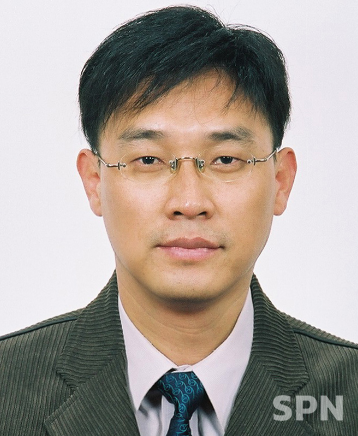
- Young-Sun JEON
- Research Professor, Konkuk University

Young-seon Jeon, Professor of Konkuk University, argues that North Korea’s leadership perceives the younger generation, defined by attenuated loyalty and a faint sense of revolutionary consciousness, as a serious threat to regime stability. In response, the Kim Jong Un regime has elevated ideological and cultural indoctrination targeting youth as a core component of its broader “human remolding” campaign. Professor Jeon identifies three principal strategies employed in this effort: the institutionalization of a communist cultural worldview, the legal and systemic obstruction of foreign cultural influences, and the instrumentalization of exemplary figures. These mechanisms, he contends, are aimed at cultivating internalized socialist morality and cultural discipline among the youth. Ultimately, the author analyzes these policies as coercive instruments designed to compel the internalization and outward performance of patriotic values.
■ See Korean Version on EAI Website
I. Regime Crisis and the Young Generation
North Korea's contemporary cultural policy has been increasingly directed toward the ideological cultivation of its youth. The regime perceives this demographic with pronounced skepticism and disapproval. Bereft of direct experiences of revolution or war, the current generation has grown up encountering foreign goods and cultural products via the jangmadang, or informal markets. Though indirect, these exposures have familiarized them with external cultural elements. Consequently, their allegiance to the Workers' Party and its supreme leadership is markedly attenuated in comparison to prior generations. While they have been instructed on the anti-Japanese revolutionary movement, this narrative has become a distant historical abstraction, consigned to textbooks rather than lived experience. The existential lessons they have absorbed through the marketplace concern survival and commerce, not ideology: theirs is a generation that has viscerally internalized the primacy of capital over doctrine.
The regime's disparaging view of its youth is evident in official state discourse. On January 20, 2018, Rodong Sinmun published an article entitled, "Foiling Ideological and Cultural Poisoning by Imperialism," which warned that " imperialists consider the rising generation as the main target of their corrupt ideological and cultural poisoning." As the "young people" are characterized as particularly receptive to novelty and highly sensitive, they are often "reduced to renegades of their countries and stooges of imperialism unwittingly." The article contends that the imperialists utilize "films, newspapers, magazines and intranets and other media," which young people "enjoy very much," in order to "corrupt" and "degenerate" them while spreading "illusions about imperialism." The global proliferation of youth-led regime changes is thus attributed to their "infection" with "imperialist ideological and cultural poisoning" (Rodong Sinmun 01/20/2018).
[Image 1,2] UCC: "We are the Loyal Youth of Socialism."
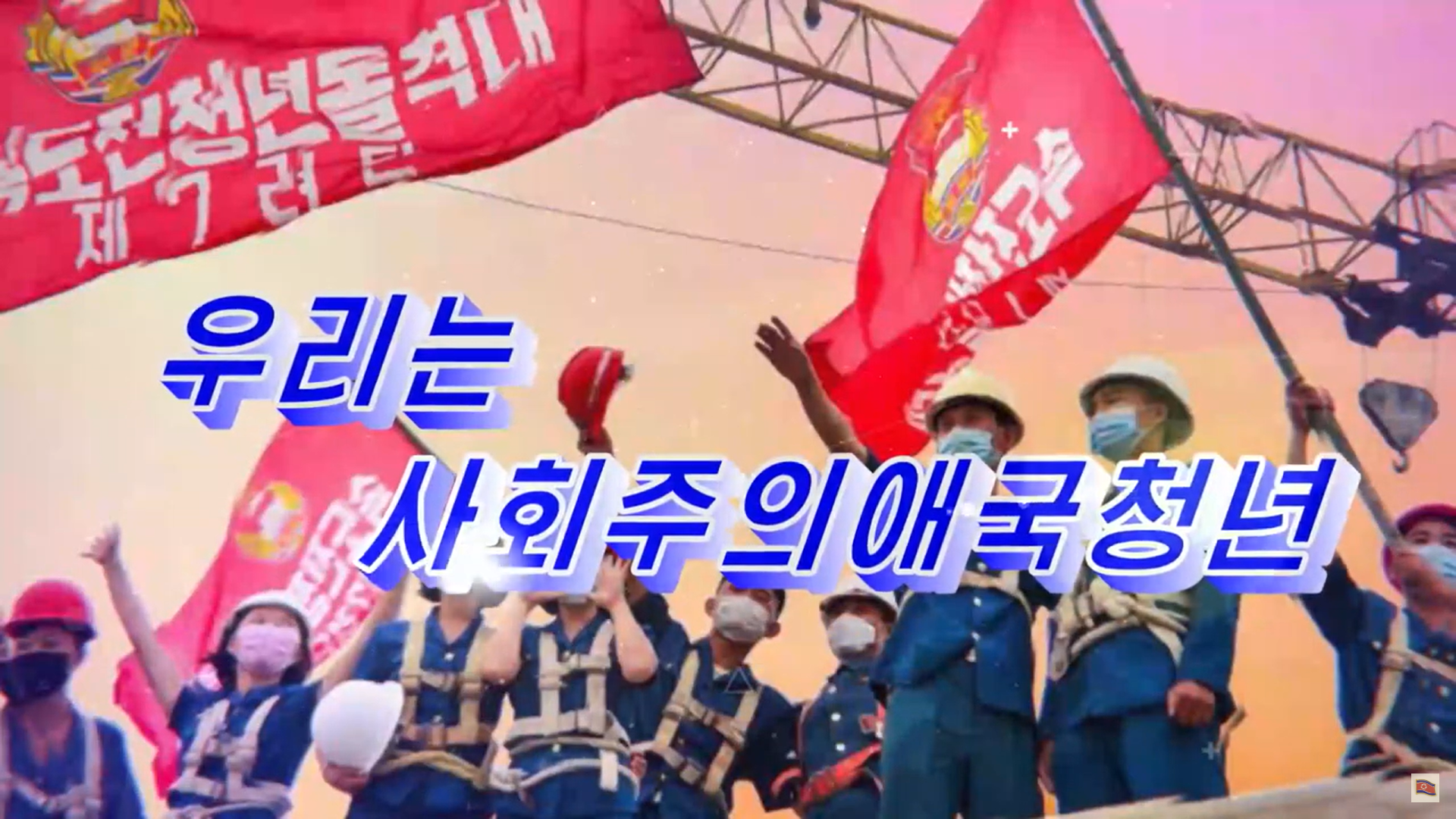
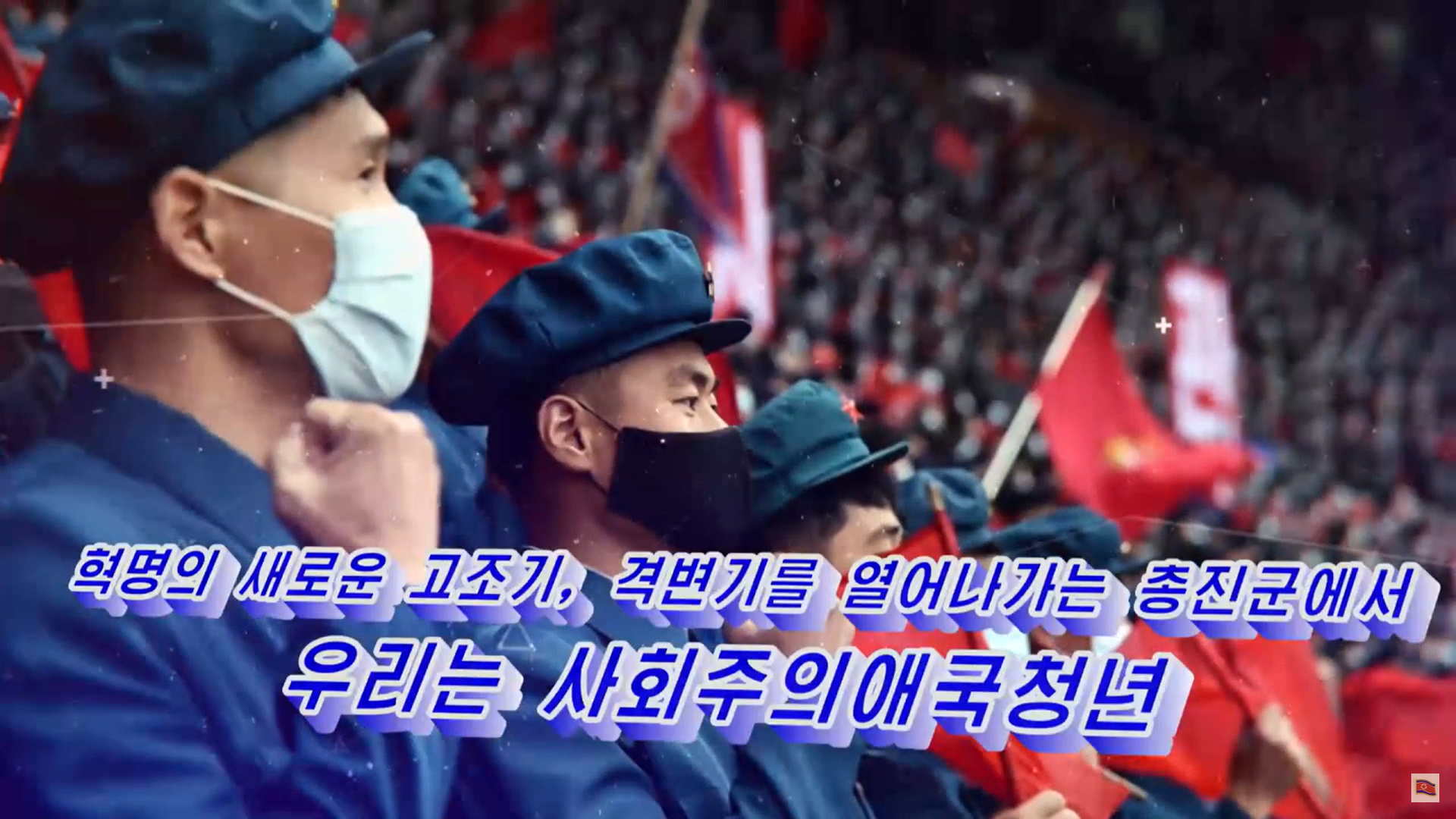
Kim Jong Un has consistently underscored the necessity of instilling a morally upright ideological culture among the youth. As concerns over the younger generation converged with broader systemic anxieties, the Eighth Party Congress catalyzed a comprehensive campaign for their ideological transformation. Cultivating and remolding youth into subjects commensurate with the demands of the new era has since become a cardinal policy objective of the Workers' Party.
Amid mounting internal crises, the Party convened a sequence of high-level meetings. In January 2021, the Eighth Party Congress was held, followed by plenary sessions of the Central Committee, regional secretary workshops, and, in April, the Sixth Conference of Party Cell Secretaries. At the latter, Kim Jong Un declared that youth education constituted a matter of existential consequence for the Party, the revolution, the nation, and the people, and that it must be pursued with unwavering dedication (Rodong Sinmun 04/09/2021).
He thereby accentuated the critical role of Party cell secretaries, officials tasked with translating central directives into community-level action. These operatives were charged with identifying and eradicating deleterious elements, from non-socialist and anti-socialist behaviors to reactionary ideological content, which imperil the proper development of the youth.
Kim's directives were institutionalized through the enactment of the Law on Rejecting Reactionary Thought and Culture (2020) and the Youth Education Guarantee Law (2021). These were followed in 2023 by the Law on Protecting the Pyongyang Cultural Language, which sought to expunge what the regime termed "puppet" cultural expressions embedded in colloquial speech.
[Image 3, 4] Televised Tributes in State Media to "Youth Heroes."
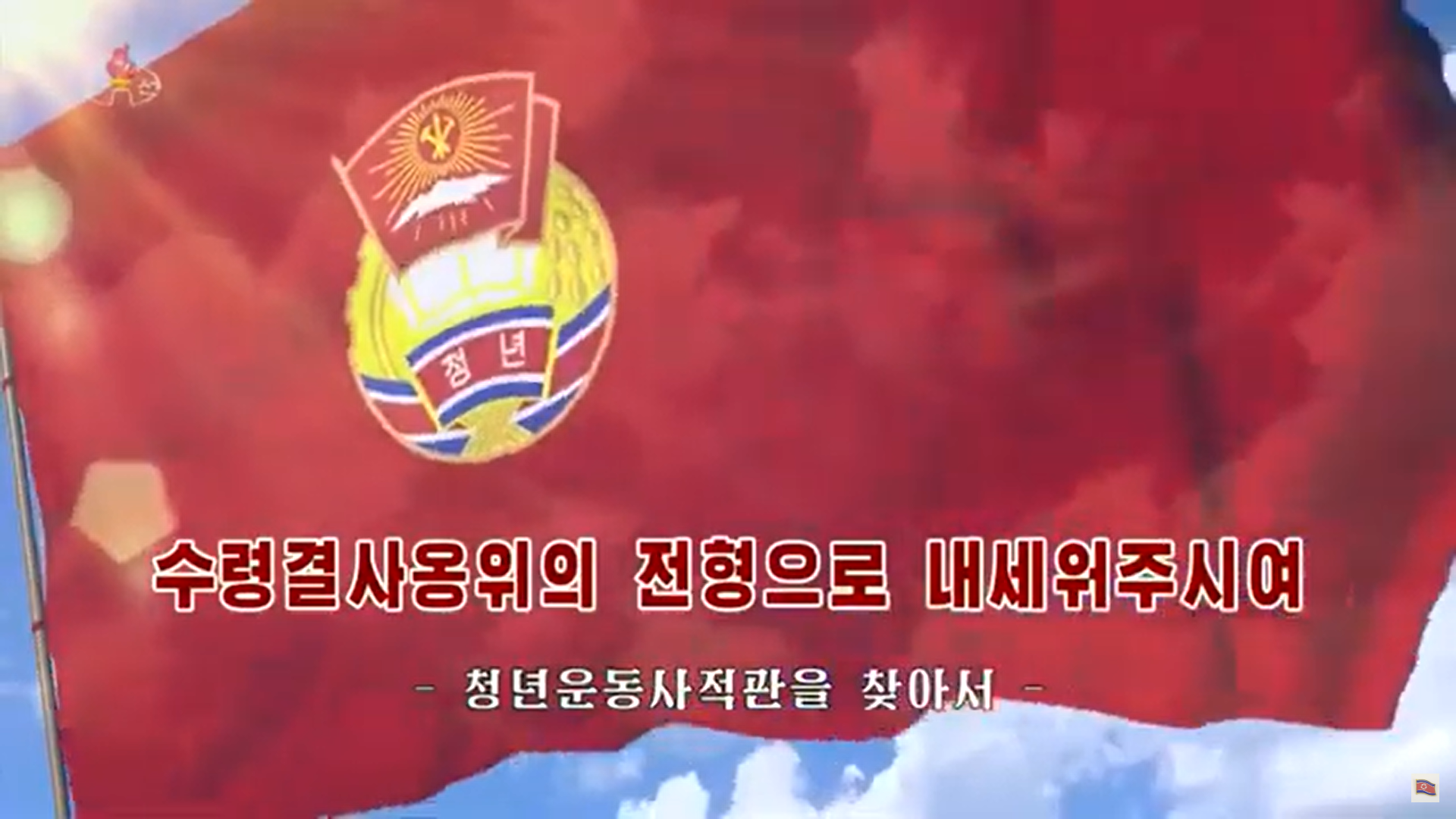
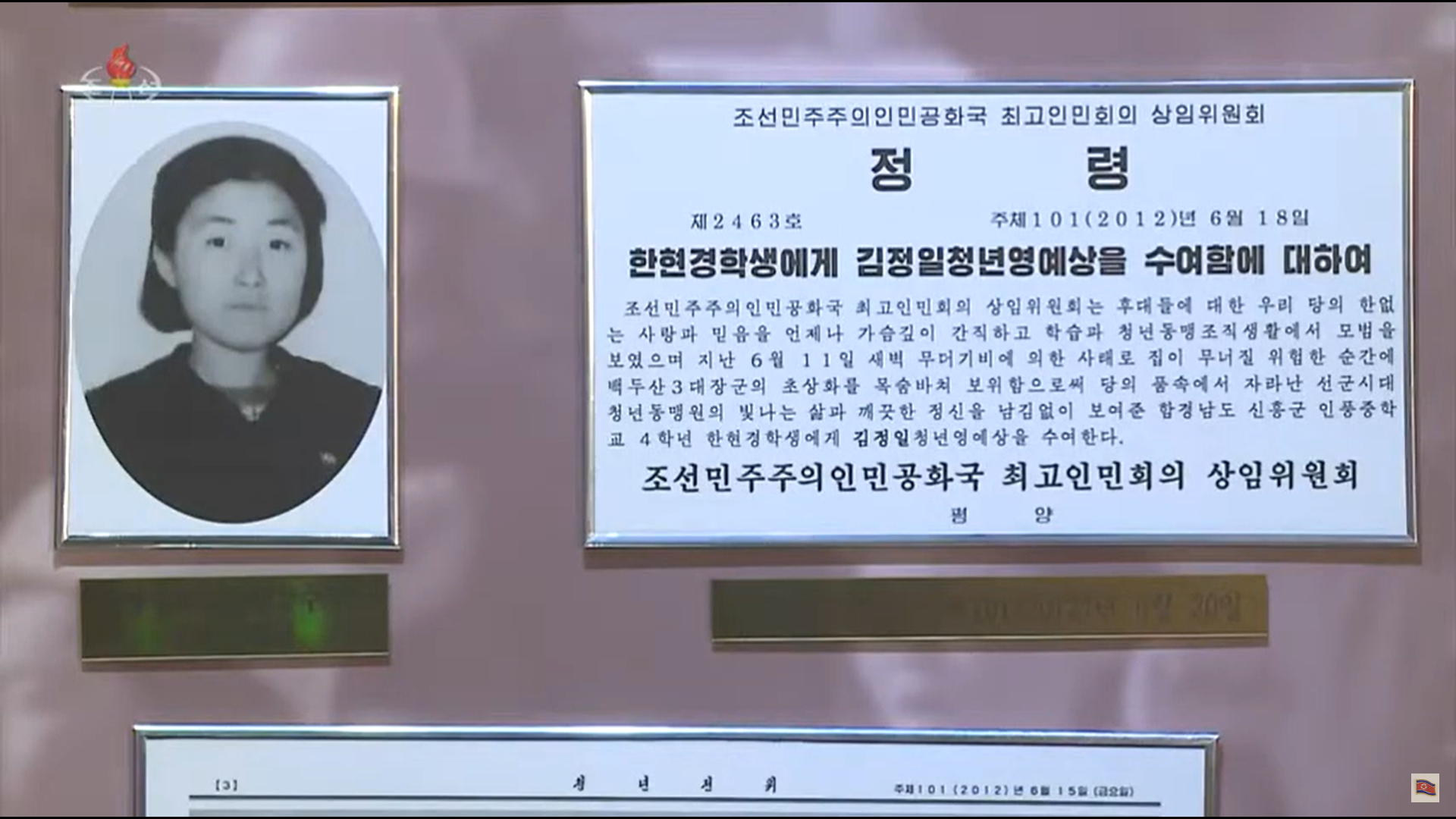
II. The Project of Youth Remolding
Under Kim Jong Un's leadership, the ideological reformation of youth has unfolded along three principal trajectories.
Foremost, the ideological remolding of youth hinges on the establishment of a correct communist cultural worldview. By educating young people in what the regime deems morally sound culture, the state seeks to cultivate an internalized sense of duty to preserve and embody it. In effect, this entails the institutional correction of what North Korea terms "our style moral customs."
The regime valorizes as most noble and authentic the culture produced by the masses. The traditional culture of the Korean people, nearly eradicated under Japanese colonial rule, is portrayed as having been salvaged by Kim Il Sung. The Kim Jong Un regime has sustained the narrative that "ideological and cultural poisoning" by the imperialists remains a persistent threat (Rodong Sinmun 01/20/2018).
Exposure to deleterious culture, the regime argues, precludes the preservation of national tradition. The responsibility of safeguarding this authentic, morally superior culture is vested in the youth. An editorial from Rodong Sinmun articulates this ethos succinctly:
Our Republic constitutes a great socialist family, morally upright and spiritually noble. Within it, the people unwaveringly revere the Great Leader and the Great General, both in life and in death; they venerate revolutionary elders, respect teachers and superiors, and foster an atmosphere of mutual assistance. That such ethical refinement persists under protracted imperialist sanctions, unimaginable within the capitalist paradigm of the strong preying upon the weak, is a testament to the Party's wise leadership, which has always treated moral discipline as integral to socialism's very survival (Rodong Sinmun 03/19/2019).
Second, the regime has sought to eliminate "negative environments" likely to seduce the youth. Since his ascension, Kim Jong Un has repeatedly amended and promulgated laws aimed at suppressing reactionary culture. The 2020 and 2021 legislative measures were designed to halt the inflow and circulation of external influences, collectively derided as "puppet culture." The 2023 Law on Protecting the Pyongyang Cultural Language criminalizes the use of non-normative linguistic forms, those considered grammatically or stylistically deviant and often associated with South Korean media. South Korean cultural penetration has been extensively documented, and among the youth, resistance to such influences is minimal. The 2023 law represents an effort to re-engineer linguistic behavior and preclude foreign cultural influence from everyday life.
Third, the regime has elevated exemplary youth as ideological paragons who embody ideal revolutionary virtues, urging emulation. Foremost among these are members of the so-called "victory generation," those who fought and triumphed in war. They are heralded as archetypes of unswerving loyalty to the 'Supreme Leader.' As Kim Jong Un warned against "mystifying the leader" in 2019, insisting he should be understood as living in solidarity with the people, the victory generation has since been reimagined as the people's spontaneous guardians of the leader. Educational materials such as the documentary The Life of the Victory Generation is a Textbook of Revolutionary Worldview and the feature film One Day, One Night (2022) exemplify this approach. Since 2023, June 25 has been designated as the "Day of Anti-American Struggle," commemorated by youth-veteran reconciliation events. These intergenerational meetings have become formalized components of national holidays.
Other exemplars include "youth heroes" such as Han Hyun-kyung, who perished in the 2012 floods while clutching the leader's portrait, and students Ri Jung-duk, Seo Ryeo-myung, and Choi Hyun-il, who died in 2019 while extinguishing a wildfire threatening the Revolutionary Martyrs' Cemetery. These individuals are venerated as embodiments of self-sacrificial devotion and integrated into ideological education.
[Image 5, 6] Sipro Materials on State Media: "The Lives of the Victory Generation are Exemplars of Revolutionary Values."


III. The Practice of 'Patriotism'
Following the collapse of the 2019 Hanoi Summit, North Korea entered a protracted period of crisis. Kim Jong Un's leadership suffered a profound setback, compounded by a public health emergency and deepening economic malaise. Bereft of credible policy alternatives, the regime responded by externalizing the sources of crisis.
By amplifying foreign threats and leveraging them as instruments of internal discipline, the regime sought to reorient its legitimacy away from personal rule and toward the sanctification of the state. It introduced two ideological pillars: "Our State Firstism" and the "People First Principle." These doctrines not only serve as rhetorical devices for Party policy but have been enshrined as obligatory beliefs among the populace. Political education programs impress upon citizens the axiomatic truth that the Party's policies, as articulated by Kim Jong Un, are the ultimate expressions of care for the people and that the DPRK is, by extension, the greatest of all states.
Concomitant with this ideological realignment is a demand for the performance of patriotism. In a system where dissent from Party orthodoxy is inconceivable, patriotism, once elevated to the level of policy, becomes a perpetual requirement. Preserving "our refined and noble culture" and upholding moral standards necessitates the use of the Pyongyang standard language, the wearing of traditional Korean attire, and the singing of national songs. As Rodong Sinmun asserted on May 22, 2020, all North Koreans must uphold a "broad triumphant avenue on all the fronts of the socialist construction", while defending their national identity against the ideological infiltration of imperialists by rejecting all unhealthy and exotic modes of living (Rodong Sinmun 05/22/2020).
Patriotism also encompasses economic behavior in that it includes the consumption of domestically manufactured goods. The "Regional Development 20x10 Policy," launched in 2024, is grounded in this logic. The initiative prioritizes consumer goods factories producing food, clothing, school supplies, and household necessities. To carry a pinewood backpack, use a notebook adorned with dandelions, or don a uniform bearing the national flag is to enact patriotism in daily life.
IV. Conclusion
As previously noted, North Korea's younger generation has been exposed, albeit indirectly, to information beyond its borders and has not endured the traumas of war. This raises considerable doubts about the extent to which Kim Jong Un's youth education policy can fulfill its intended objectives.
Nonetheless, should this policy prove even moderately effective in shaping the outlook of youth, it may serve to mitigate the regime's crisis of legitimacy, exacerbated by the diplomatic failures of 2019. While the regime's efforts at ideological indoctrination may seem discordant with the lived realities of its youth, the possibility that they may elicit a modicum of resonance or shared identity warrants continued observation. n
References
Kim, Yong Il. 2019. "Making Beautiful and Noble Moral Climate Become the National Climate is the Requirement of Current Development (In Korean)." Rodong Sinmun. March 19.
Rodong Sinmun. 2018. "Rodong Sinmun Calls for Foiling Ideological and Cultural Poisoning by Imperialism." January 20.
Rodong Sinmun. 2020. "Rodong Sinmun Calls for Intensified Edification of Young People." May 22.
Rodong Sinmun. 2021. "6th Conference of Cell Secretaries of Workers' Party of Korea Closes." April 9.
■ Young-Sun JEON is HK Research Professor at Konkuk University, Institute of Humanities for Unification (IHU).
■ Translated and edited by Chaerin KIM, Research Assistant
For inquiries: 02 2277 1683 (ext. 208) | crkim@eai.or.kr